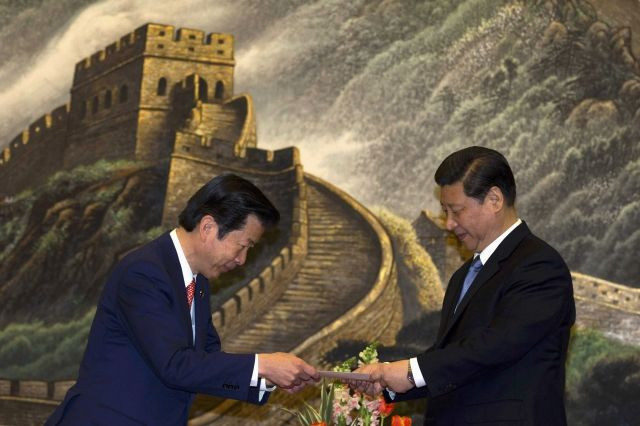Japan Envoy Meets Chinese Communist Party Chief Over Island Dispute

A special envoy from Japan met China’s Communist Party chief, Xi Jinping, Friday and expressed the hope that the territorial tensions between the two countries over a group of islands in the East China Sea could be resolved.
Natsuo Yamaguchi, leader of the New Komeito Party, a junior partner in Japan's ruling coalition, said Japan would take a broad view in dialogue with Beijing to resolve the dispute which escalated in recent months to the point that Beijing and Tokyo scrambled fighter planes Jan. 11 over airspace incursions near the contested islands.
"Japan wishes to pursue ties with China while looking at the big picture," Yamaguchi was quoted as saying by Reuters after his meeting with Xi, who is set to take over as president in March.
"I firmly believe our differences with China can be resolved," Yamaguchi said, but added that he did not directly discuss the islands issue with Xi.
Tensions between China and Japan escalated Sept.11 when the Japanese government announced the signing of a contract worth 2.05 billion yen ($26 million) to buy three of the five disputed islands, known as Senkaku in Japan and Diaoyu in China, from their private owner. Chinese patrol ships have frequented the waters around the islands since then.
Yamaguchi said he delivered a letter to Xi from Japanese Prime Minister Shinzo Abe, Reuters has reported.
"We agreed that it is important to continue dialogue with the aim of holding a Japan-China summit between the two leaders," he told reporters, without divulging further details.
Xi said China’s position on the Islands issue was consistent and clear and that the Japanese side should “face up to history as well as reality” and make joint efforts with China, according to a statement released by China’s Foreign Affairs Ministry.
Xi urged Japan to respect the “national feelings of the Chinese people and correctly handle historical issues,” the statement said.
Abe said in his letter that both Tokyo and Beijing should bear common responsibility for peace and development of the Asia-Pacific region and the world at large.
Beijing, in a report submitted to the U.N. in December, argued that topographic and geological characteristics show that the continental shelf in the East China Sea was “the natural prolongation of China's land territory.”
"The natural prolongation of the continental shelf of China in the East China Sea extends to the Okinawa Trough, which is an important geographical unit featuring remarkable partition," China's Xinhua news agency reported, citing the document.
China has laid claim to the islands since the U.N. returned them to Japanese sovereignty in accordance with the Okinawa Reversion Agreement that ended the U.S. occupation of Okinawa. Despite the normalization of relations between China and Japan in 1972, repeated tussles involving fishing and patrol boats from China, Japan, Taiwan and Hong Kong have occurred in the past.
© Copyright IBTimes 2025. All rights reserved.






















